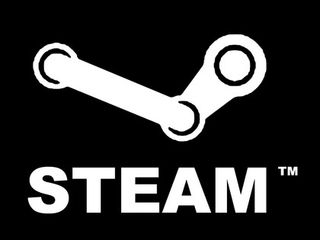Does Steam have an unfair monopoly over PC gaming?
And what happened to Games For Windows Live?

Valve launches its Steam game-download platform for Apple Macs this month, with the Half Life publisher planning to release all games and all updates simultaneously for Mac and Windows in future.
It's a massive deal, but at the same time it also begs the question: "Does Steam have an unfair monopoly in the PC gaming market?"
What about all those other PC gaming download services that are currently available? And what of Microsoft's much-hyped 'Games For Windows Live' service on PC? Has Valve simply Steam-rollered all over them?
UK games industry analyst Nick Parker, from Parker Consulting, doesn't think so. "I would say that digital distribution is so nascent that it would be churlish to suggest anybody has an unfair monopoly at this stage as there is such a long way to go and the prospects for current or future technologies will change accordingly," he says.
"Furthermore, there are so many alternative gaming experiences available online which would impact on the success of Games for Windows Live, so picking Steam as the culprit would not be considering the whole market picture."

STEAM ON: The most popular download service for PC gaming
Steam is currently the most popular download service for PC gamers, but there are dozens of alternatives available for publishers to place their games on.
Get daily insight, inspiration and deals in your inbox
Get the hottest deals available in your inbox plus news, reviews, opinion, analysis and more from the TechRadar team.
"Impulse, Direct 2 Drive, and Metaboli have most, if not all, of the publisher's major releases," says PC Gamer Editor, Tim Edwards. "The reason gamers flock to Steam, though, comes from convenience and user experience. The Steam client is just better than the rest of the opposition."
A fair monopoly?
Michael French, Editor of UK games industry trade journal MCV also acknowledges Steam's stronghold: "I don't think it would be a stretch to say that Steam has a monopoly on PC games – but I wouldn't necessarily brand it unfair," he says.
"The PC games market has always been quite 'Wild West' - it can give life to anyone willing to innovate and pioneer new business models that are properly supported. It's a market that serves mass market consumers and core, savvy, technically minded players, but both demographics have (as the whole world has) slowly migrated online. The fact that Valve was there waiting for the switch isn't their fault – it shows they are savvy."
French thinks there is still space for lots of players in the PC gaming download market "when it comes to providing a formal or unified system for patches and multiplayer – hence why we have seen the likes of Impulse emerge relatively quickly and Microsoft try its own hand at it in Games For Windows Live (GFWL)."
Aside from questions as to the value of Microsoft's 'GFWL' offering these are all fair points. Steam clearly does currently own the 'nascent' PC gaming download market, purely because Valve has been a very successful first-mover and has created a superb service for PC gamers that just works really well. It owns the market because nobody has done anything that offers gamers anything of better value.
Yet.
Even Valve's latest competition is quick to give Steam its dues, with Gian Luzio, COO of new download service Green Man Gaming telling TechRadar: "Well... actually no, they don't have a monopoly - they have a great service. It is the responsibility of their competitors to encourage more gamers into the market by offering a different and compelling offer."
Most Popular


